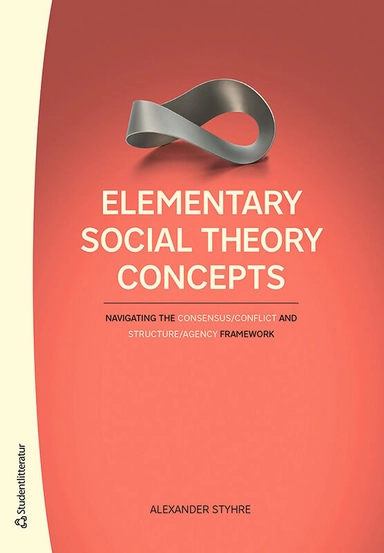

Elementary Social Theory Concepts - Navigating the Consensus/Conflict and Structure/Agency FrameworkUpplaga 1
- Upplaga: 1a upplagan
- Utgiven: 2020
- ISBN: 9789144138800
- Sidor: 176 st
- Förlag: Studentlitteratur AB
- Format: Häftad
- Språk: Engelska
Om boken
Åtkomstkoder och digitalt tilläggsmaterial garanteras inte med begagnade böcker
Mer om Elementary Social Theory Concepts - Navigating the Consensus/Conflict and Structure/Agency Framework (2020)
I november 2020 släpptes boken Elementary Social Theory Concepts - Navigating the Consensus/Conflict and Structure/Agency Framework skriven av Alexander Styhre. Det är den 1a upplagan av kursboken. Den är skriven på engelska och består av 176 sidor djupgående information om samhälle och politik. Förlaget bakom boken är Studentlitteratur AB som har sitt säte i Lund.
Köp boken Elementary Social Theory Concepts - Navigating the Consensus/Conflict and Structure/Agency Framework på Studentapan och spara pengar.
Tillhör kategorierna
Referera till Elementary Social Theory Concepts - Navigating the Consensus/Conflict and Structure/Agency Framework (Upplaga 1)
Harvard
Oxford
APA
Vancouver



















